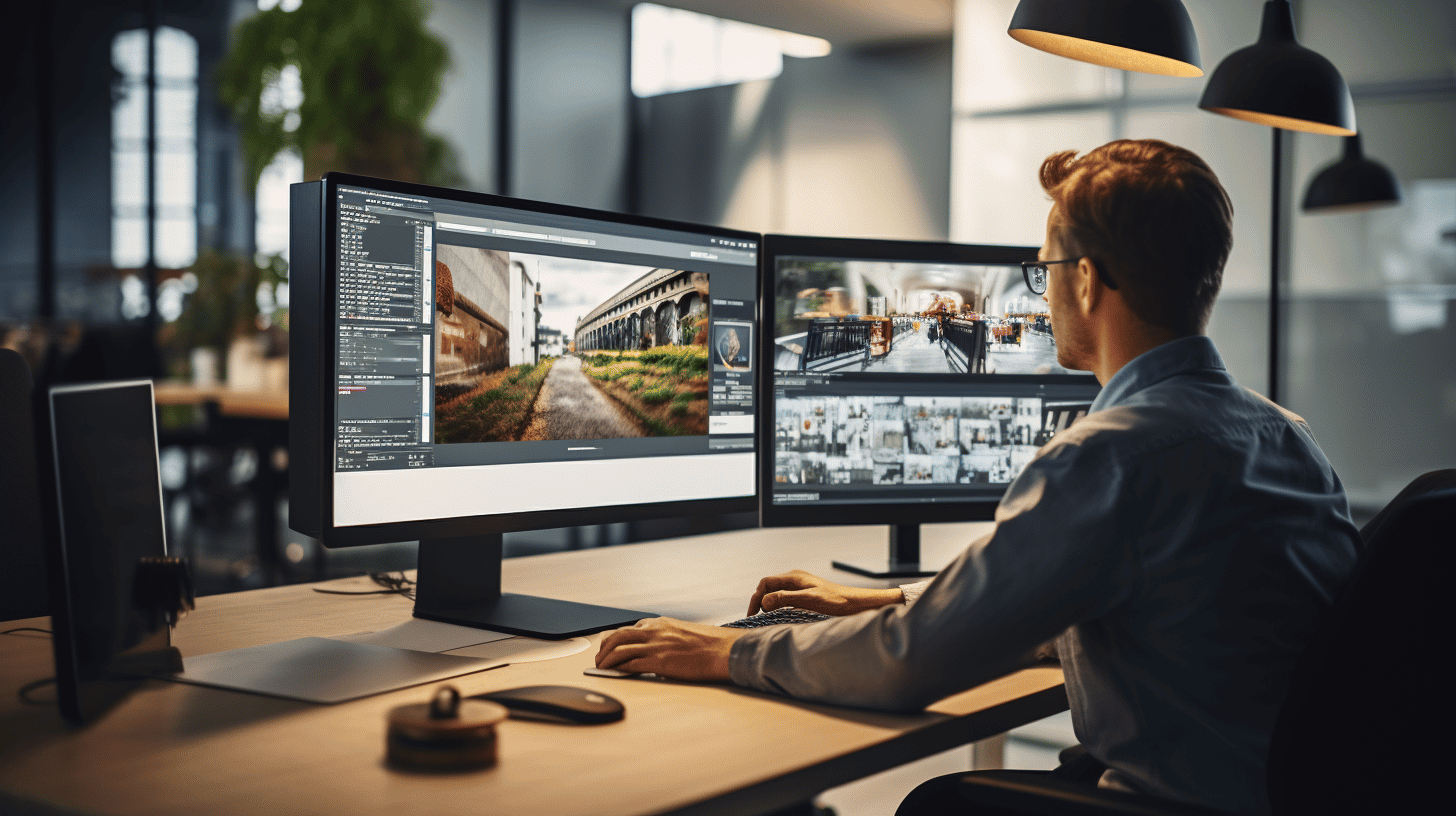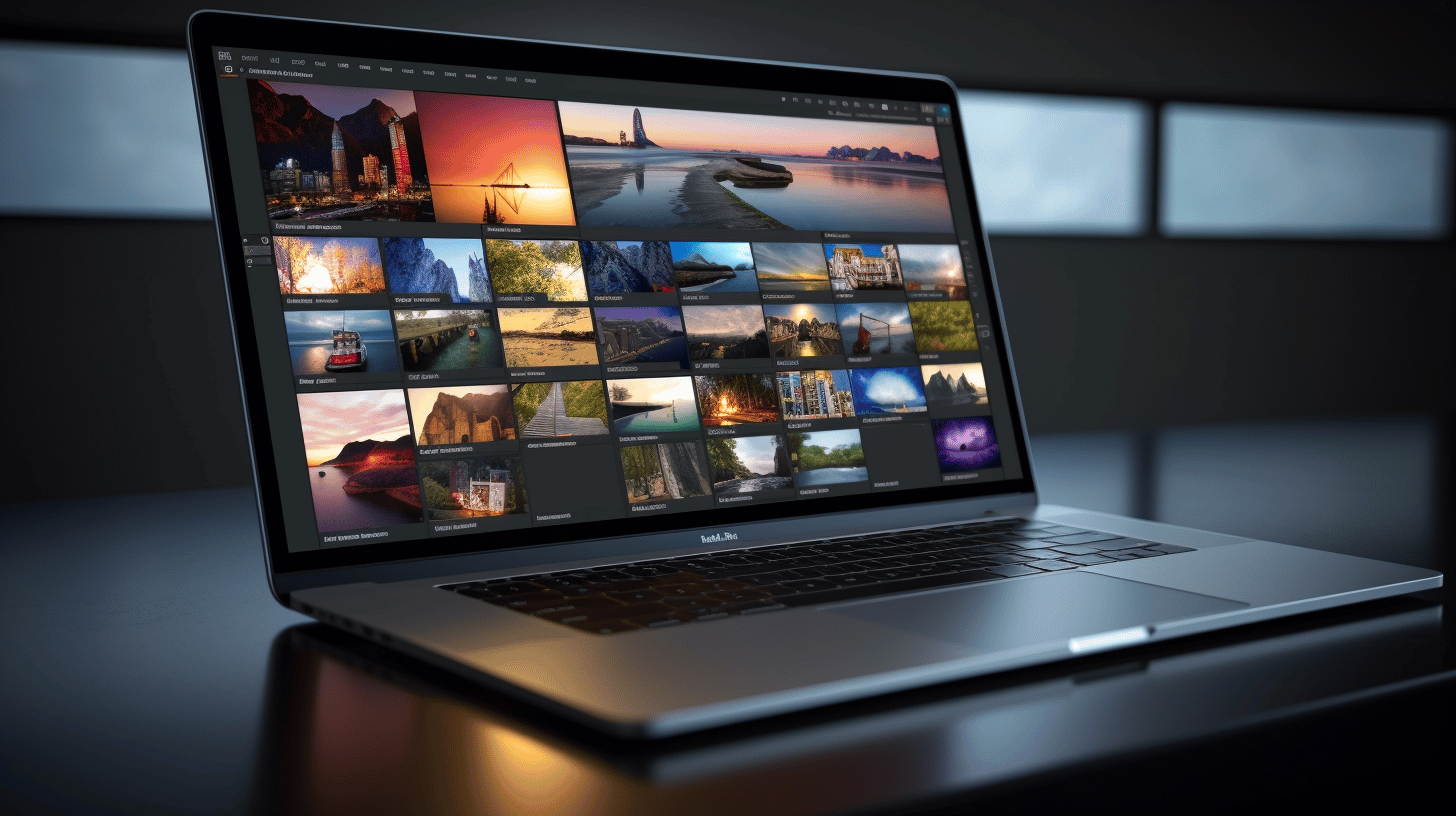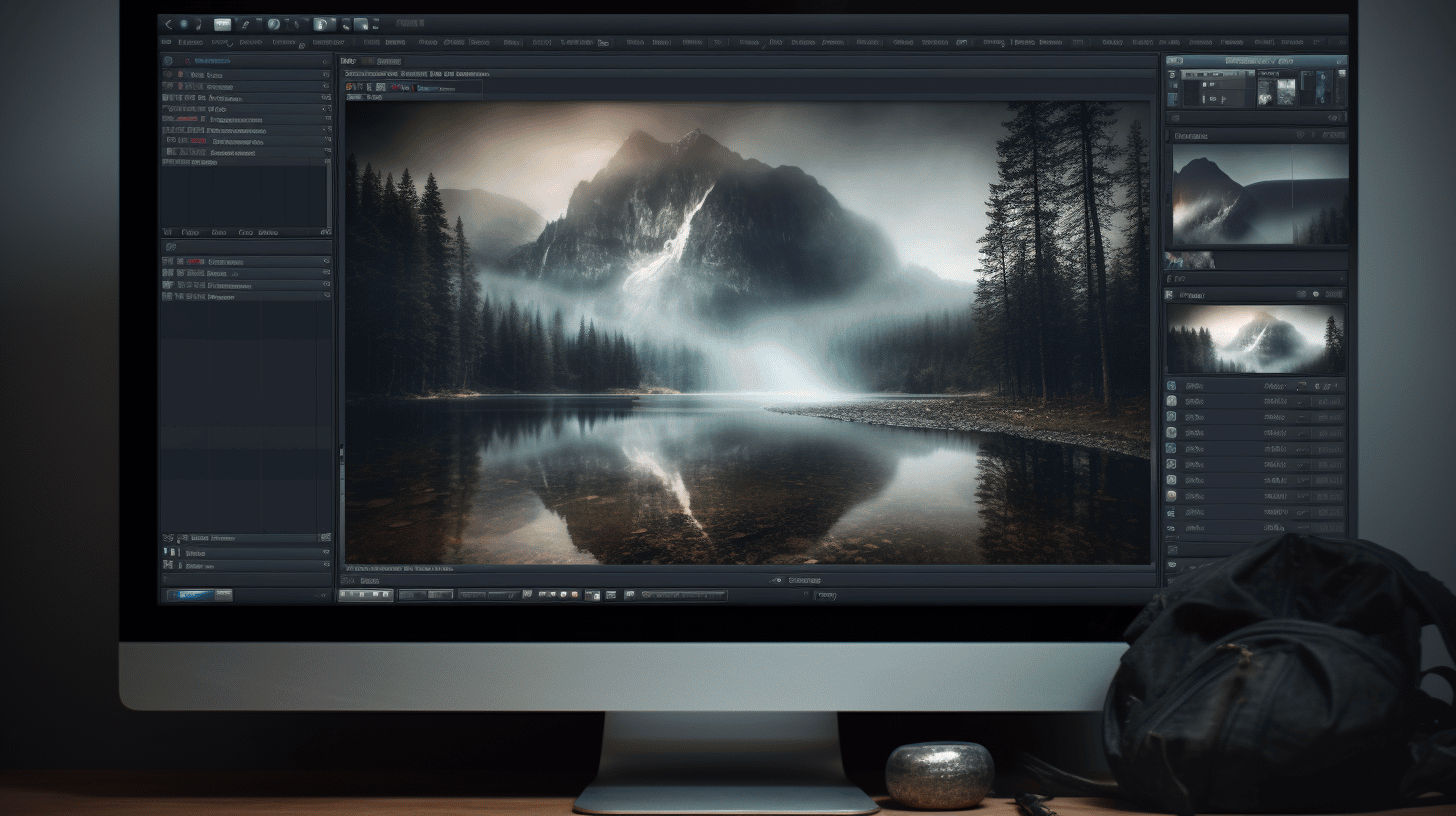In recent years, the field of photography has witnessed a rapid evolution with the advent of artificial intelligence (AI) technology. AI has now become a crucial tool for photographers and enthusiasts alike, revolutionizing the way images are captured, processed, and enhanced. From automating image editing tasks to creating stunning visual effects, AI is proving to be a game-changer in the world of photography.
With advancements in AI algorithms and computational power, photographers now have access to powerful tools that not only streamline their workflows but also unlock creative possibilities that were previously unimaginable. This integration of AI into photography has opened up new avenues for artistic expression and has made high-quality imagery more accessible to a wide range of individuals.
In this article, we will explore the significance of AI in photography and delve into the various applications of AI in the field. We will discuss the automation of image processing tasks, the development of advanced autofocus systems, and the creation of novel effects and personalized data sets. Additionally, we will examine how AI has impacted image quality and authenticity, as well as its role in photography workflows.
So, whether you’re an aspiring photographer, a seasoned professional, or simply an enthusiast, join us on this captivating journey as we uncover the impact of AI on the world of photography. Let’s dive in!
Significance of AI in Photography
From enhancing images to generating personalized data sets, Artificial Intelligence (AI) has revolutionized the field of photography. It has become an indispensable tool for professional photographers and enthusiasts alike. In this section, we will explore some of the key ways in which AI is transforming the world of photography.
Automation of Image Processing
One of the most significant contributions of AI in photography is its ability to automate image processing tasks. With the help of AI algorithms, photographers can now enhance the quality of their images and even create entirely new ones from scratch. These algorithms analyze thousands of images, learning patterns and aesthetics, and replicate them to produce stunning results.
Using AI-powered software, photographers can easily adjust lighting, color grading, and sharpness in their images with just a few clicks. This automation not only saves time but also ensures consistent quality across a photographer’s portfolio.
Advanced Autofocus Systems
Gone are the days when photographers had to manually adjust their camera’s focus to capture a perfect shot. Thanks to AI, modern cameras are equipped with advanced autofocus systems that can intelligently track subjects in real-time. These systems use AI algorithms to analyze the scene, identify the subject, and adjust the focus accordingly.
Whether it’s capturing fast-moving subjects in sports photography or achieving precise focus in portrait photography, AI-powered autofocus systems ensure photographers never miss a moment. The technology continuously evolves, pushing the boundaries of what’s possible in terms of accuracy and speed.
Creation of Novel Effects and Personalized Data Sets
AI has also opened up a world of creative possibilities for photographers by enabling them to create novel effects and generate personalized data sets. Artists can use AI algorithms to add artistic filters, simulate film stocks, or even transform their images into unique art styles.
Moreover, AI allows photographers to generate personalized data sets that can be used for specific tasks, such as training AI models or creating custom presets. With AI, photographers can push their creativity to new heights and unlock endless possibilities in their work.
In conclusion, AI has had a profound impact on photography, transforming the way images are processed, subjects are captured, and creativity is expressed. The automation of image processing, advanced autofocus systems, and the ability to create novel effects and personalized data sets are just a few examples of AI’s significance in the field. As technology continues to advance, we can expect AI to play an even more pivotal role in shaping the future of photography.
AI Applications in Photography
Photography has come a long way thanks to advancements in technology. One such advancement is the integration of artificial intelligence (AI) into photography, transforming the way we capture and enhance images. AI applications in photography have opened up new possibilities, allowing us to achieve stunning results with ease. From portrait mode effects to image enhancing, capturing daily life moments, and even acting as a virtual photography assistant, AI is revolutionizing the world of photography. Let’s explore these exciting applications in more detail.
Portrait Mode
Portraits are a popular genre in photography, and AI has taken them to the next level with its portrait mode capabilities. By leveraging AI algorithms, cameras can now simulate the shallow depth of field effect seen in professional portrait photography. This creates a pleasing and artistic background blur while keeping the subject in sharp focus. AI analyzes the scene, identifies the subject, and applies the necessary adjustments to achieve that stunning portrait look. Whether you’re capturing portraits on a smartphone or a professional camera, AI can help you achieve professional-level results.
Image Enhancing
AI algorithms have also made significant strides in improving image quality. Whether it’s reducing noise, sharpening details, or correcting colors, AI can enhance your images with a few simple clicks. Instead of spending hours manually editing your photos, you can now rely on AI-powered software to do the heavy lifting for you. These algorithms analyze the image and make intelligent adjustments to improve overall quality, resulting in visually stunning images that capture the true essence of the moment.
Capturing Daily Life
With AI, capturing everyday moments has never been easier. AI technology has improved the image capturing capabilities of smartphones and cameras, allowing you to take beautiful, well-exposed photos even in challenging lighting conditions. Whether it’s a vibrant sunset, a fast-moving subject, or a busy cityscape, AI algorithms automatically adjust the settings to ensure you get the best shot every time. Say goodbye to blurry, underexposed, or overexposed photos – AI is here to help you capture the magic of your daily life effortlessly.
AI Photography Assistant
In addition to enhancing images, AI can also serve as your virtual photography assistant. Imagine having an AI-powered companion that automates mundane tasks, leaving you more time to focus on your creative vision. From organizing and categorizing your photos to suggesting edits based on your stylistic preferences, AI can streamline your post-production workflow and enhance your overall efficiency. With the assistance of AI, you can spend more time behind the lens and less time in front of the computer.
As we can see, AI applications in photography are revolutionizing the way we capture, enhance, and optimize our images. From creating stunning portrait mode effects to improving image quality, capturing daily life moments, and acting as a virtual photography assistant, AI is shaping the future of photography. Embracing these advancements can unlock endless creative possibilities and allow photographers of all levels to achieve breathtaking results. So, whether you’re an amateur enthusiast or a seasoned professional, harness the power of AI and elevate your photography to new heights.
AI Integration in Photography Workflows
When it comes to the world of photography, it’s no secret that technology has revolutionized the way we capture and edit images. From advanced cameras to cutting-edge editing software, photographers have embraced these tools to enhance their work. And now, with the rise of artificial intelligence (AI), there’s another game-changing addition to the mix.
AI integration in photography workflows has gained significant traction in recent years. This powerful technology offers photographers the ability to streamline their processes, automate tasks, and improve overall efficiency. In fact, a recent survey found that almost 50% of respondents have already integrated AI into their workflows.
But what exactly does AI bring to the table in photography? Let’s explore some key benefits and applications of AI in this context:
Speeding up the image culling process with AI tools like Narrative Select
One of the most time-consuming tasks in photography is the process of culling through hundreds, if not thousands, of images to select the best ones. This process can be tedious and daunting, but with AI-powered tools like Narrative Select, it becomes significantly faster and more efficient.
By using algorithms to analyze and understand the content of each image, Narrative Select can identify and rank images based on various criteria like image quality, composition, and subject matter. This saves photographers hours of manual effort, allowing them to focus on the more creative aspects of their work. In fact, Narrative Select is known to speed up the image culling process by up to 10 times!
Streamlining the capturing of professional headshots with AI headshots
For photographers specializing in headshots, AI technology has brought about significant advancements. With AI headshots, photographers can now streamline the process of capturing and editing professional headshots.
Using machine learning algorithms, AI headshot software can automatically detect facial features, adjust lighting, and optimize the overall look of the image. This not only saves time during the photoshoot but also ensures consistent quality across all headshots. Photographers can now deliver polished and professional images to their clients without the need for extensive manual editing.
Automating repetitive tasks and improving post-production efficiency
Photography workflows often involve numerous repetitive tasks, such as renaming files, resizing images, and applying specific filters. These tasks can be time-consuming and monotonous, taking away valuable time that could be spent on more creative aspects of photography.
AI technology comes to the rescue by automating these repetitive tasks. By training AI models to recognize and perform specific actions, photographers can effectively delegate these mundane tasks and focus on the artistic elements of their work. This automation not only saves time but also improves overall post-production efficiency.
In conclusion, integrating AI into photography workflows offers a plethora of benefits. From speeding up the image culling process to streamlining the capturing of professional headshots, and automating repetitive tasks, AI technology is revolutionizing the way photographers work. By leveraging the power of AI, photographers can enhance their productivity, deliver high-quality results, and unleash their creative potential.
Narrative Select – AI-powered tools that speed up the image culling process in photography workflows.
Impact of AI on Image Quality and Authenticity
Artificial Intelligence (AI) has revolutionized many aspects of our lives, including the way we capture and perceive images. With the development of AI-driven technologies, there has been a significant impact on image quality and authenticity. In this article, we will explore how AI influences these two crucial aspects of photography.
Improving Image Quality
One of the remarkable contributions of AI in photography is its ability to enhance image quality. By leveraging advanced algorithms, AI can effectively reduce noise, sharpen details, and correct colors, resulting in visually appealing and high-quality photographs. Here are some ways in which AI improves image quality:
- Noise Reduction: AI-powered denoising techniques can effectively reduce the presence of unwanted grainy pixels in images, resulting in cleaner and smoother photographs.
- Detail Enhancement: AI algorithms can analyze an image and intelligently enhance the fine details, making them more prominent and visually pleasing.
- Color Correction: AI-based color correction algorithms can adjust the color balance and tone of an image, ensuring that the colors appear more vibrant and accurate.
These advancements in AI-driven image processing techniques lead to improved image quality, enhancing the overall visual experience for both photographers and viewers.
Challenges to Authenticity
While AI has undoubtedly improved image quality, it has also raised concerns about the loss of authenticity in photography. With the rise of AI-generated images and generators, it becomes increasingly challenging to differentiate between real and artificially created visuals. Here’s what you need to know about the impact of AI on authenticity:
- AI-Generated Images: AI techniques, like generative adversarial networks (GANs), can create highly realistic images that are indistinguishable from real photographs. These AI-generated images pose a challenge to the authenticity of the visual content.
- Image Manipulation: AI-powered image editing tools provide immense flexibility in modifying images, raising concerns about the authenticity of the final result. These tools enable users to alter reality, leading to questions about the credibility of the images.
- Deepfake Technology: AI algorithms can be used to create deepfake videos, where individuals’ faces are convincingly swapped onto other people’s bodies, resulting in deceptive and manipulated visuals.
As AI continues to advance, it is essential to address the ethical and legal implications regarding the authenticity of visual content, ensuring trust and credibility in the digital world.
In conclusion, AI has had a profound impact on image quality, enhancing it by reducing noise, sharpening details, and correcting colors. However, this technological advancement also brings challenges to the authenticity of photography, with AI-generated images and manipulative tools blurring the lines between real and artificially created visuals. As we move forward in this AI-driven era, it becomes crucial to strike a balance between harnessing the benefits of AI and preserving the integrity of visual content.
Conclusion
In conclusion, the impact of AI on the world of photography has been revolutionary. From the automation of image processing to advanced autofocus systems, AI has significantly transformed the way photographers capture and enhance their images. The creation of novel effects and personalized data sets has opened up a whole new realm of creative possibilities in photography. Additionally, AI applications such as portrait mode, image enhancing, capturing daily life, and AI photography assistants have made photography more accessible and intuitive for both professionals and enthusiasts alike.
As AI continues to integrate seamlessly into photography workflows, we can expect even greater advancements in image quality, authenticity, and efficiency. While some may argue that AI diminishes the artistry and human touch in photography, it is undeniable that AI has allowed photographers to push the boundaries of creativity and achieve stunning results.
If you’re passionate about photography and eager to explore the possibilities of AI in your practice, be sure to check out Wimarys.com. Wimarys.com is a comprehensive resource for tutorials, reviews, tips, and tricks related to photography and cameras, with a focus on Sony mirrorless cameras. Whether you’re a beginner or an experienced photographer, Wim Arys’ website provides valuable insights and inspiration for your photography projects. Visit Wimarys.com today and take your photography to the next level.
Frequently Asked Questions
- How is AI impacting the world of photography?
AI is revolutionizing photography by automating tasks like image editing, object recognition, and facial detection. It is also enabling new features like automated image tagging, intelligent photo enhancement, and smart composition suggestions.
- Can AI replace professional photographers?
While AI can assist photographers and automate certain tasks, it cannot entirely replace the creative vision and skillset of professional photographers. The human element, such as artistic decision-making and emotional connection, remains crucial in photography.
- What are some AI-powered photography tools available?
There are several AI-powered photography tools available, such as Adobe Sensei, Google Photos, and Skylum Luminar. These tools use AI algorithms to enhance images, remove imperfections, and provide automated editing suggestions.
- Is AI affecting the job market for photographers?
AI is reshaping the job market for photographers. While it may automate certain tasks, it also creates new opportunities by enabling photographers to focus more on their creative work rather than repetitive processes. Adaptation and embracing AI tools can be beneficial for photographers in the long run.
- What are the ethical concerns regarding AI in photography?
Ethical concerns regarding AI in photography include issues like deepfake manipulation, infringement of privacy, and bias in automated image recognition algorithms. It is crucial to address these concerns and ensure responsible use of AI in the field of photography.




0 Comments